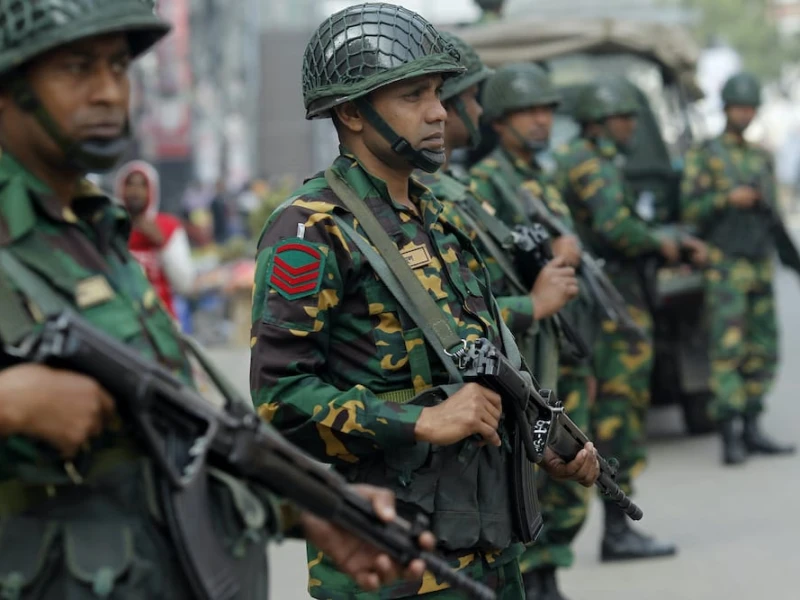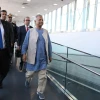For decades, the residents of Bhobdaha in Jashore and Khulna have battled knee-deep water, silted rivers and disrupted livelihoods every monsoon, and relief may finally be in sight.
On Monday, the Bangladesh Water Development Board (BWDB) and the Bangladesh Army’s 24 Engineer Construction Brigade signed a Memorandum of Understanding (MoU) in Dhaka, launching an ambitious project to free the area from its persistent waterlogging.
At the BWDB headquarters in Panthapath, officials from both organisations gathered to formalise the partnership.
B.M. Abdul Momin, Superintending Engineer of Jashore Water Development Circle, Khulna, signed on behalf of the BWDB, while Lt Col Mamun Ur Rashid, Project Director of the 24 Engineer Construction Brigade, represented the Army.
The plan is bold in scale -- 81.5 kilometres of five rivers will be re-excavated — the Harihar (35 km), Hari-Teligati (20 km), Upper Bhadra (18.5 km), Teka (7 km) and Shree (1 km). Estimated at Tk 13,998.19 lakh, the work will be carried out under the government’s “Delegated Procurement” method, giving the Army a key role in execution.
More than dredging is at stake. The initiative promises to improve drainage, make practical use of excavated soil by converting it into local roads, and protect the ecosystem through turfing and tree plantation.
BWDB Director General Engineer Md Enayet Ullah described the project as part of the interim government’s push to resolve Bhobdaha’s longstanding crisis.
BWDB and the Bangladesh Army will jointly implement, supervise, and monitor the project, which is expected to bring significant relief to the region once completed,he told the gathering.
The ceremony was attended by senior officials, including Md Aminul Islam, Additional Chief Engineer, South-West Region, BWDB, Khulna; Lt Col Tanvir Ahmed, psc, Staff Officer-1 (Planning), 24 Engineer Construction Brigade; Palash Kumar Banerjee, Executive Engineer, Jashore Water Development Division, BWDB; and Major Gazi Nazmul Hasan, Project Officer, 24 Engineer Construction Brigade.
For thousands in Bhobdaha, where stagnant water has for years damaged crops and cut off villages, the MoU signals hope that their rivers may finally flow freely again — and with them, the promise of better days.


 Prev Post :
Prev Post :
